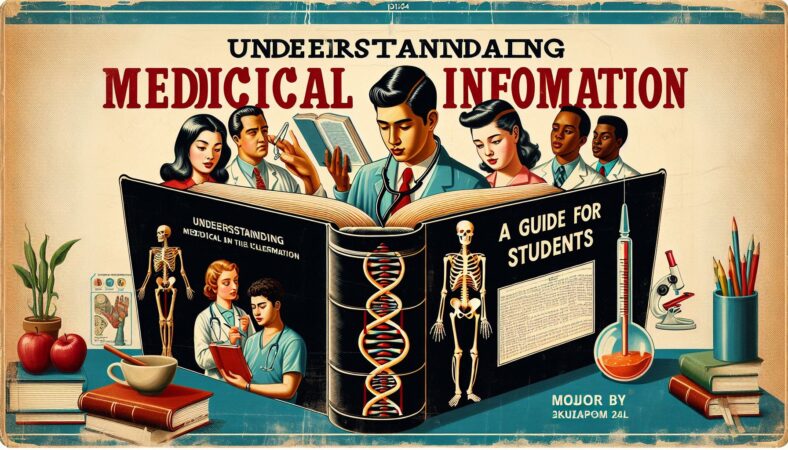As a student, understanding medical information is crucial for maintaining your overall health and well-being. Medical knowledge not only helps you take care of yourself but also empowers you to make informed decisions about your health. Whether you’re dealing with a minor illness or a chronic condition, having a solid grasp of medical information can make a big difference in your quality of life.
The Importance of Medical Literacy
Medical literacy refers to the ability to understand and use medical information to make informed decisions about your health. It involves being able to interpret medical terms, understand treatment options, and navigate healthcare systems effectively. With the abundance of information available online and in textbooks, it can be overwhelming for students to discern between accurate and misleading information. That’s why developing strong medical literacy skills is essential for students.
Tips for Improving Your Medical Literacy
-
Ask Questions: Don’t be afraid to ask your healthcare provider or professor questions about your condition or the medical information you come across. Seek clarification when needed to ensure that you fully understand the information being presented to you.
-
Do Your Research: Take the time to research your condition or the medical terms you encounter. Use reputable sources such as medical textbooks, academic journals, and websites like the Centers for Disease Control and Prevention (CDC) or the National Institutes of Health (NIH).
-
Stay Engaged: Stay engaged in your healthcare by actively participating in discussions with your healthcare provider. Be informed about your condition, treatment options, and any potential side effects.
-
Seek Second Opinions: If you’re unsure about a diagnosis or treatment plan, don’t hesitate to seek a second opinion. Different healthcare providers may have different perspectives, and getting a second opinion can help you make a more informed decision about your health.
Conclusion
Understanding medical information is a valuable skill that every student should possess. By developing strong medical literacy skills, you can take control of your health and well-being. Remember to ask questions, do your research, stay engaged in your healthcare, and seek second opinions when needed. With a solid understanding of medical information, you can make informed decisions that will benefit your overall health for years to come.
